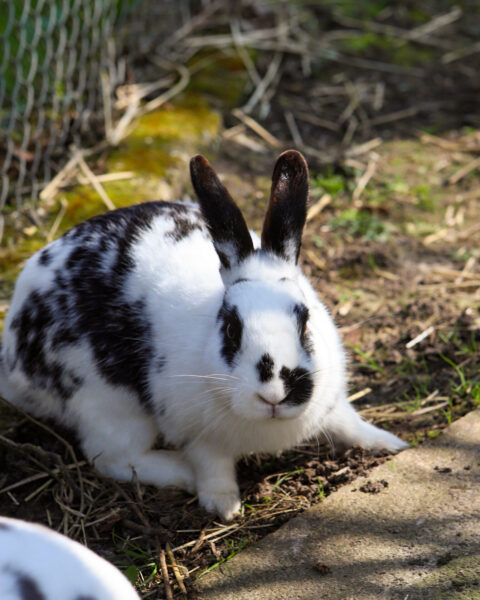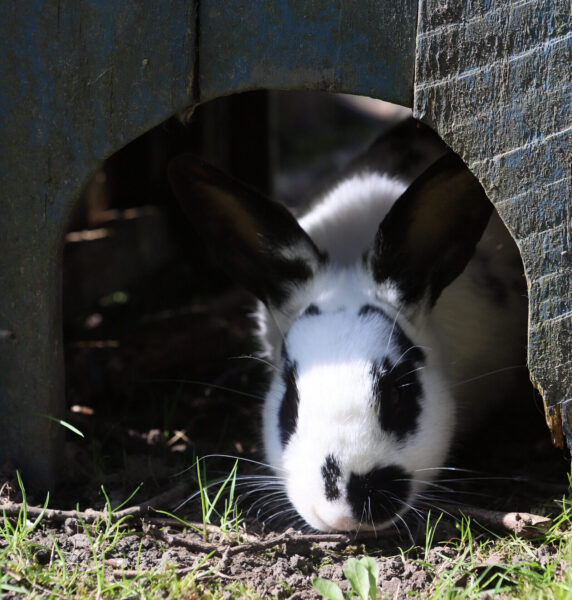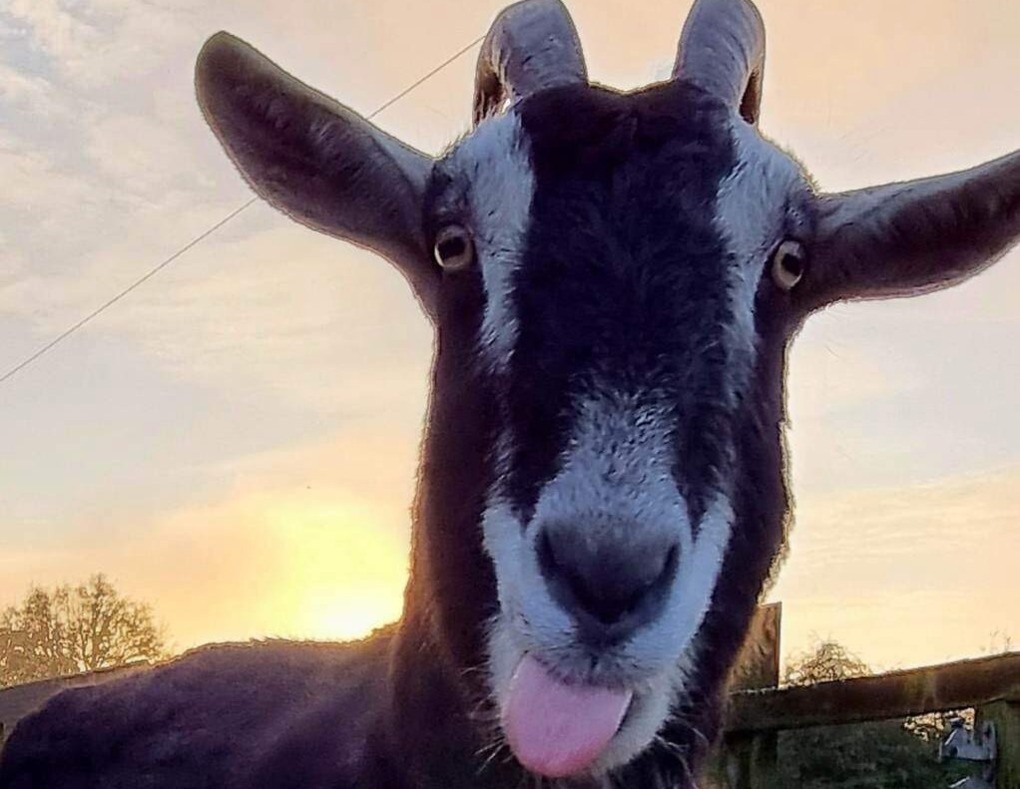
As spring arrives and Easter approaches, life blossoms at Ferne Animal Sanctuary. However, following the chocolate-fuelled celebrations, there’s a less cheerful reality that unfolds for us every year – a spike in rabbit rehoming cases.
The post-Easter period often sees a surge in requests to rehome rabbits. Why? Because rabbits, with their fluffy coats, snuggly long ears and adorable twitching noses, are often perceived as the ideal Easter present. Unfortunately, the truth about rabbit ownership is far more complex than the cuddly exterior might imply.
Despite their small size, rabbits are not low-maintenance pets. They require dedicated understanding, attention and a significant time commitment from their human friends.
What does it truly mean to own and care for a rabbit? And is it the right choice for your family?
A home for life.
In the wild, a rabbit will roam up to 10 kilometres, which means they need spacious housing when kept as a pet. A small cage or hutch is not sufficient, they require ample space to hop, stretch, stand upright, dig and explore. Ideally, rabbits should have access to a large, predator proof enclosure where they can exercise and express their natural behaviours.
A social life is a rich life.
Rabbits are highly social prey animals who thrive and feel safety in the company of their own kind for long periods of the day. A solitary rabbit can suffer from feeling vulnerable, loneliness and boredom, leading to stress-related behaviours such as thumping, gnawing of furniture, aggression toward humans and health problems. It’s recommended to keep rabbits in pairs or small groups, provided they are properly introduced and neutered/spayed to prevent unwanted litters. Read more about pet spaying here.

Not all small animals are the same.
When it comes to pairing rabbits with other species, such as guinea pigs, caution is warranted. Rabbits and guinea pigs have different communication styles, behaviours and care requirements. Guinea pigs communicate through vocalisations and scent marking, while rabbits rely more on body language and territorial behaviour. This communication barrier can result in misinterpretations and aggressive conflicts between the two species. Additionally, Rabbits are generally much larger than Guinea Pigs which can lead to them inadvertently injuring their smaller companions.
The two species also have different nutritional requirements – both species require a diet high in fibre, primarily from hay, whereas guinea pigs who are unable to produce vitamin C, need Guinea Pig specific pellets and fruits or vegetables to provide this in the appropriate levels, to feed them the same diet can lead to nutritional deficiencies and health issues for one or both animals.
They eat more than carrots.
On the topic of food, it’s often assumed that rabbits thrive on a diet of carrots and lettuce, however, proper nutrition is vital for maintaining rabbit health. Fresh hay is essential to keep their teeth and digestive systems healthy. However, rabbits should also be fed a variety of fresh vegetables and limited amounts of pellets. Feeding a balanced diet helps prevent obesity and dental issues, both common problems in rabbits kept on improper diets.
What’s up doc?
Despite their ability to grow their wild population with seemingly little obstruction, potential rabbit owners should be aware rabbits are quite prone to illness. Infectious diseases like myxomatosis are often easy to reference when thinking about rabbit health, and even though a vaccine exists rabbits can still catch the painful disease even when vaccinated. When considering vaccinations, they often come at a considerable financial cost, including the vaccination for Rabbit Viral Haemorrhagic Disease (RVHD). Several virulent strains of RVHD are circulating, with subtle symptoms that can be fatal within a few days. This highly contagious disease spreads rapidly and can have devastating effects. On a day-to-day basis, it is more common for rabbits to be prone to dental problems, including overgrown teeth and abscesses, which require regular veterinary care. Additionally, through the summer months, flystrike poses risks, as flies lay eggs on rabbits’ fur, causing painful wounds. Preventative measures such as cleanliness and fly repellents are crucial to mitigate this risk.
Is a rabbit the right choice for you?
If you know how to care for rabbits, they are rewarding companions, however each year, countless rabbits are relinquished to shelters or abandoned in parks and wooded areas.
If you are considering the idea of welcoming a rabbit into your home our team is always happy to offer support and advice. Alternatively, support Ferne Animal Sanctuary by sponsoring an animal this Easter: Sponsor an Animal | Ferne Animal Sanctuary

